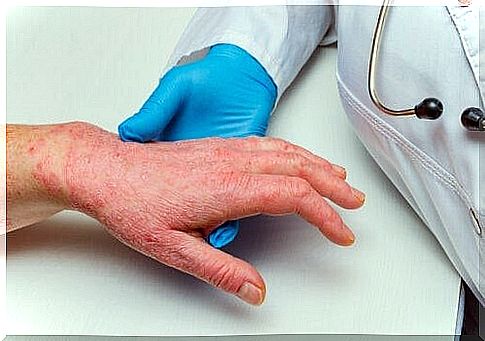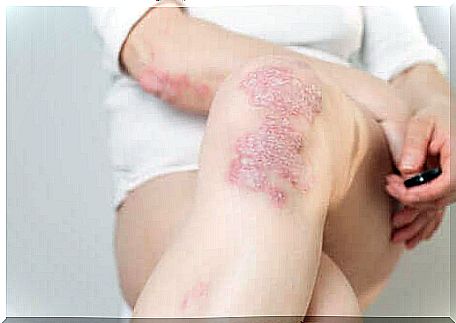Psoriasis And Coronary Heart Disease: Are They Related?

There is a point of contact between psoriasis and coronary heart disease. Although the relationship seems unsuspected, we now know that those suffering from this skin disease are at a greater risk of being affected by a coronary event than the rest of the population.
The explanation lies in the general inflammation of the organism. Psoriasis is an inflammatory process mediated by the immune system, while affecting mainly the skin.
Due to chronic inflammation, the body lives in a constant state of stress. Stressed cells express their metabolism in a not entirely healthy environment, with long-term consequences. It is known that prolonged inflammatory states are always harmful, even when they do not generate obvious symptoms.
Among heart attacks, psoriasis patients tend to be younger. Furthermore, they begin to live with cardiovascular risk already before the age of fifty, the typical risk age for the rest of the population.
What is psoriasis?
Let’s first see what psoriasis is to understand how it can be linked to coronary heart disease. It is a chronic inflammatory disease that mainly affects the skin. It can also extend to joints and some internal organs, but to a lesser extent.
Skin inflammation from psoriasis causes a buildup of cells in the epidermis. These cells cluster into itchy plaques that turn red and dry.

The classic symptoms of psoriasis are:
- Dry skin.
- Nail changes.
- Arthralgia or joint pain.
- Reddened plaques with peeling of the skin.
- Generalized itching, but especially on the plaques.
Although the cause of psoriasis is not entirely clear, it is established that it is an autoimmune disorder. The body’s defense cells do not recognize skin cells as their own and attack them. White blood cells and other elements of the immune system such as antibodies intervene in this physiological process.
The relationship between psoriasis and coronary heart disease is not a symptom of the disease. This means that not all people with psoriasis are prone to heart attacks, a higher incidence of these events has simply been demonstrated.
Relationship between psoriasis and coronary heart disease: some data
Numerous studies have shown the reality of this relationship. A growing body of data has confirmed what was at first just a suspicion.
It has been seen that in cases of severe psoriasis, with very marked symptoms, cardiovascular mortality is up to 50% higher . This means that people with psoriasis are more likely to have a fatal heart attack than anyone else.
Other studies that evaluated groups of people with psoriasis over a ten-year period recorded an incidence of coronary heart disease that was 28% higher than the general population.

Any process that causes chronic inflammation ends up affecting multiple organs and tissues. In addition to psoriasis, we can include rheumatoid arthritis and lupus erythematosus in this group of diseases, which are also associated with an increase in cardiovascular deaths.
Other statistics show that people with psoriasis tend to suffer from stress and high blood pressure to a greater extent than the average. Stress and high blood pressure are cardiovascular risk factors.
Relationship between psoriasis and coronary heart disease
In psoriasis, the increased risk of coronary heart disease is linked to an increased presence of plaque in the arteries. However, these plaques are not calcified and are not related to cholesterol levels.
Furthermore, atherosclerosis appears very early, when the patient is still young, considerably increasing the heart risk.

Plaques in the arteries reduce the blood supply to tissues, including the heart muscle and are at risk of rupture; plaque rupture is the main cause of acute myocardial infarction.
If in addition to the plaques, a chronic inflammatory process occurs, the risk of rupture increases. The same inflammatory substances are able both to stimulate the formation of plaque and to cause its final rupture.
If you have psoriasis, worry, but don’t despair. It is essential to keep symptoms under control through strict medical monitoring. Recent studies have shown that once inflammation is stable, the chance of developing coronary heart disease decreases.
Once consulted with the specialist, it is sufficient to follow the indicated therapy. Advances in science and discoveries on psoriasis control have come a long way in greatly improving the quality of life.









